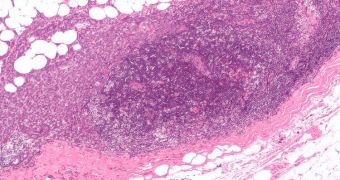Scientists have recently developed a new method for conducting genetic profiling, which they say could help expert identify the weak points of breast cancer cells. This approach could help launch studies on a new avenue of research for combating this widespread disease.
If validated, the technique could be applied to other types of cancer as well, the team behind the work says. Details of the work appear in the the latest issue of Cancer Discovery, the newest journal of the American Association for Cancer Research (AACR).
This genetic profiling method is the result of a large-scale scientific study led by the chief executive officer of the Institute of Cancer Research in London, Alan Ashworth, PhD. He says that the study responds to a growing need for developing personalized approaches to treating cancer.
At this time, most women suffering from breast cancer get roughly the same course of treatment. Oncologists have been hoping to develop personalized approach – that could be specifically tailored to every patient's needs – for many years, but nothing happened until now.
What Ashworth, his colleague Christopher Lord, PhD, and the rest of the ICR team have done is identify the genes on which breast cancer cells are absolutely dependent for their very survival.
“We’ve already had significant success in identifying some of the genes that are highly active in breast cancer and then blocking them, such as HER2. Our new work shows there are many other ways of doing this by using some of the inherent weaknesses found in breast cancer cells,” Ashworth explains.
“We showed that large-scale functional profiling allows the classification of breast cancers into subgroups distinct from the established subtypes,” the team leader goes on to say.
Lord explains that this study sets the foundation for future studies on new drugs. The medication available today is only mildly effective, and so doctors lack chemicals that could eradicate cancer in one fell swoop.
“We want to refine each patient’s treatment according to the specific type of disease they have,” Lord says. One of the most negative aspects about cancer is that it adapts to treatment, and can become resistant altogether.
“To do this we first need to know where the weaknesses are in breast cancer cells and to then develop drugs that hit these weak spots. With this new information we can start to do that,” Lord concludes.

 14 DAY TRIAL //
14 DAY TRIAL //